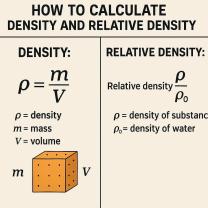Can CEUs be transferred into college credits?
The conversion of Continuing Education Units (CEUs) to college credits is not a standardized process and can vary depending on the policies of the educational institution and the specific requirements of the program or degree. In many cases, traditional colleges and universities may not accept CEUs for direct transfer into academic credit.
Here are some factors to consider:
Accreditation:
- Colleges and universities are typically accredited by regional accrediting bodies. The conversion of CEUs to college credits may depend on whether the institution recognizes the accreditation of the organization or provider offering the continuing education. Institutions often have specific criteria for accepting transfer credits.
Relevance to Degree Program:
- The content of the continuing education activities is crucial. Some colleges may consider accepting CEUs if the content aligns with the academic requirements of a particular degree program. However, this decision is often at the discretion of the academic department.
Prior Learning Assessment (PLA):
- Some institutions have programs or policies for Prior Learning Assessment (PLA), which may include the evaluation of non-traditional learning experiences for potential academic credit. CEUs could be considered as part of a PLA process, but policies vary by institution.
Professional Development vs. Academic Credit:
- CEUs are primarily designed for professional development and maintaining professional credentials, while college credits are typically earned through academic coursework. Some institutions may draw a distinction between the two and may be more willing to recognize academic coursework for transfer.
Individual College Policies:
- Each college or university may have its own policies regarding the acceptance of CEUs. It's essential to contact the admissions or academic advising office of the specific institution to inquire about their policies and procedures.
Before pursuing the transfer of CEUs to college credits, individuals should contact the admissions or academic advising office of the college or university where they are seeking credit. They can provide information about the institution's policies, procedures, and criteria for accepting non-traditional forms of credit.
Additionally, if there is a specific degree program in mind, contacting the department or faculty responsible for that program may provide more insights into whether CEUs could be considered for credit within the context of that program. Keep in mind that the decision to accept or reject CEUs for credit is ultimately at the discretion of the educational institution.
Can Continuing Education Units (CEUs) be converted into college credits?
Converting Continuing Education Units (CEUs) directly into college credits is generally not possible. However, there are a few indirect ways in which CEUs might be considered for college credit, with varying degrees of possibility and acceptance:
1. Portfolio credit: Some colleges and universities offer "portfolio credit" or "prior learning assessment" programs where students can receive credit for previously acquired knowledge and skills, regardless of how they were obtained. If your CEU program was rigorous and provided significant learning outcomes relevant to a specific college course, you might be able to petition for credit through portfolio assessment. However, this is often a case-by-case basis and requires strong evidence of your learning.
2. ACE-reviewed courses: The American Council on Education (ACE) reviews continuing education programs and assigns them credit recommendations. If your CEU program is ACE-reviewed and the credits align with a specific college course, some colleges might accept them for transfer credit. However, this is not guaranteed, and individual colleges have their own policies on transferring credit.
3. Professional development credit: Some graduate programs, especially in professional fields like education or business, might accept CEUs for fulfilling professional development requirements. This wouldn't directly count towards your degree, but it could potentially save you time and money by fulfilling a program requirement.
4. Specific exceptions: In rare cases, certain professions might have specific agreements with colleges or universities that allow direct conversion of CEUs to college credits. For example, some teacher certification programs might accept CEUs for specific courses required for certification. However, these situations are highly specific and not generalizable.
Overall:
- Direct conversion of CEUs to college credits is unlikely.
- Explore options like portfolio credit, ACE-reviewed courses, or professional development credit for indirect possibilities.
- Always check with the specific college or program you're interested in for their policies on transferring CEUs.
Remember, CEUs and college credits serve different purposes. CEUs focus on professional development and maintaining competence, while college credits contribute to a broader academic degree. While some indirect pathways might exist, it's important to manage expectations and understand the limitations of transferring CEUs to college credits.













